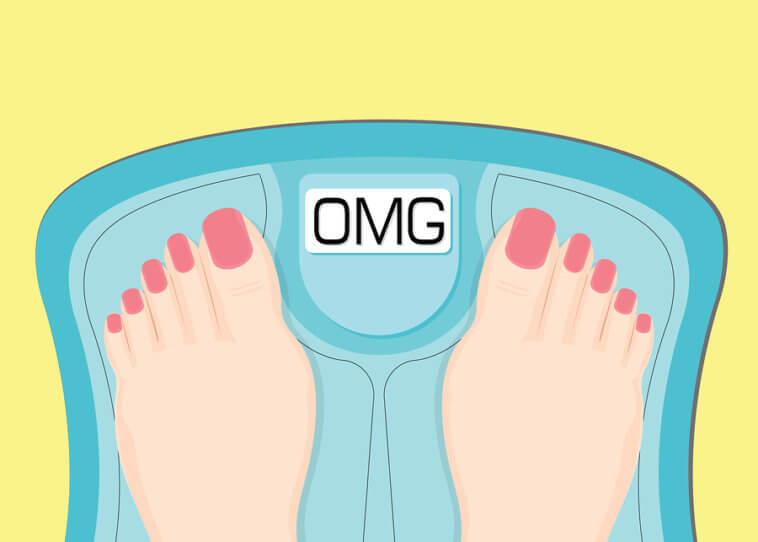
Stress can really take a toll on one’s health, in ways you probably never thought about. People who are desperately trying too hard to meet deadlines, make ends meet and manage a tough daily routine, could find expanded waistlines. You may not realize it, but stress and anxiety play a cardinal role in weight gain and we shall identify how so.
According to research, stress can add a few pounds to your body without you realizing it. It’s similar to how you try and fight emotions such as those spewed following heartbreak through a sugar spike. Here are a few ways that stress can lead to weight problems such as obesity.
The stress hormone
This hormone is basically what is left behind in the system under stressful conditions. When the body feels stressed or under pressure, the brain releases chemicals such as adrenaline, CRH, andcortisol. This release may be triggered in response to an injury, pressure, and potential threat. With adrenaline rushing through the body, your blood flows away from the internal organs and you will not feel as hungry. However, as soon as the impact of adrenaline wears off, the stress hormone also known as cortisol will indicate the body to procure food.
Now, let’s consider this situation in a workplace setting. You have a deadline to meet in a few hours but your work is far from finished. Your brain will react to this situation by triggering a release. So, once the adrenaline effect settles down, you will end up feeling hungry and munch on a pizza slice and coke. As a result, stress will lead to that fat accumulation around the waist.

Impact of anxiety
Let’s suppose you have a big presentation or sales pitch tomorrow, so the night will be spent in a state of nervousness, nail-biting and panic. The brain will also release adrenaline and so you’ll get that wired up feeling. This situation is commonly known asanxiety – the fear related to uncertainty.
Anxiety leads to emotional eatingsince it helps the body and brain to relax and divert focus from that anxiety-causing matter to the best thing about being alive – FOOD! According to the American Psychological Association’s survey on stress, 40 percent of the sample population succumbed to emotional eating post anxiety episodes. Another 42 percent were found to divert attention through TV post an anxiety episode.
In addition to all this, emotional eating is mindless because you don’t consider how much and for how long have you been munching on that packet of Doritos. So, you are essentially inviting unwanted fat to your body.

Untimely cravings and munching
Chronic stress leads one to findcomfort foods, and these foods are not one bit healthy! Remember those night-long exam preparations when you were only satisfied by a bag of potato chips and your favorite cola. Yes, those were the comfort foods you reached out under stressful conditions.
When the brain encounters constant stress, the stress hormone makes the body to crave for fat and sugar. You must have also noticed that in the urban cities where people work for longer hours, they prefer to pick up fast food more often than fixing a healthy snack at home. According to a lab experiment, mice that were stressed were enticed more toward high-fat food pellets, confirming that stress and fatty foods are linked.

Stress and insomnia
Stress is also a leading cause of insomnia. So, while the rest of the world is enjoying their everyday sleep, yourmind refuses to shut down. As a result of disturbed sleep, the functioning of appetite controlling chemicals such as ghrelin and leptin is rummaged. This is exactly why you feel the urge to munch on something from the fridge late at night.
According to a study, individuals that were sleep deprived lost less weight relative to those that completed the recommended sleep cycles on a daily basis, which confirms that insomnia caused by stress and depression leads to weight problems.
The takeaway!
Research has also shown that weight gain could be effectively mitigated under stressful conditions by following a few tips, as mentioned below:
- Exercise more often to control the release of stress hormones; aerobics can really help. Plus, exercise will speed up your metabolismand help you burn those extra calories.
- If you are aware that you fall victim to stress easily, make sure you resort to mindful eating. Don’t satisfy your body’s urge for food through unhealthy snacks; rather make use of vegetables, fresh fruits,andsalads in your routine diet and untimely munching.
- Rather than finding comfort in food, look up other leisure activities to keep your mind and body busy. Look for things that will quickly uplift your mood under a stressful situation to mitigate the production of cortisol.
- Ensure proper sleep. If you have not been able to sleep through the night, take short power napsthroughout the day to keep up the production of appetite controlling chemicals.
If you are frequently hunted by stress, it won’t make you obese unless you allow yourself to be lured by comfort foods and unwanted fats and sugars. It’s all under yourcontrol. A little willpower is all you need!





Comments
Loading…